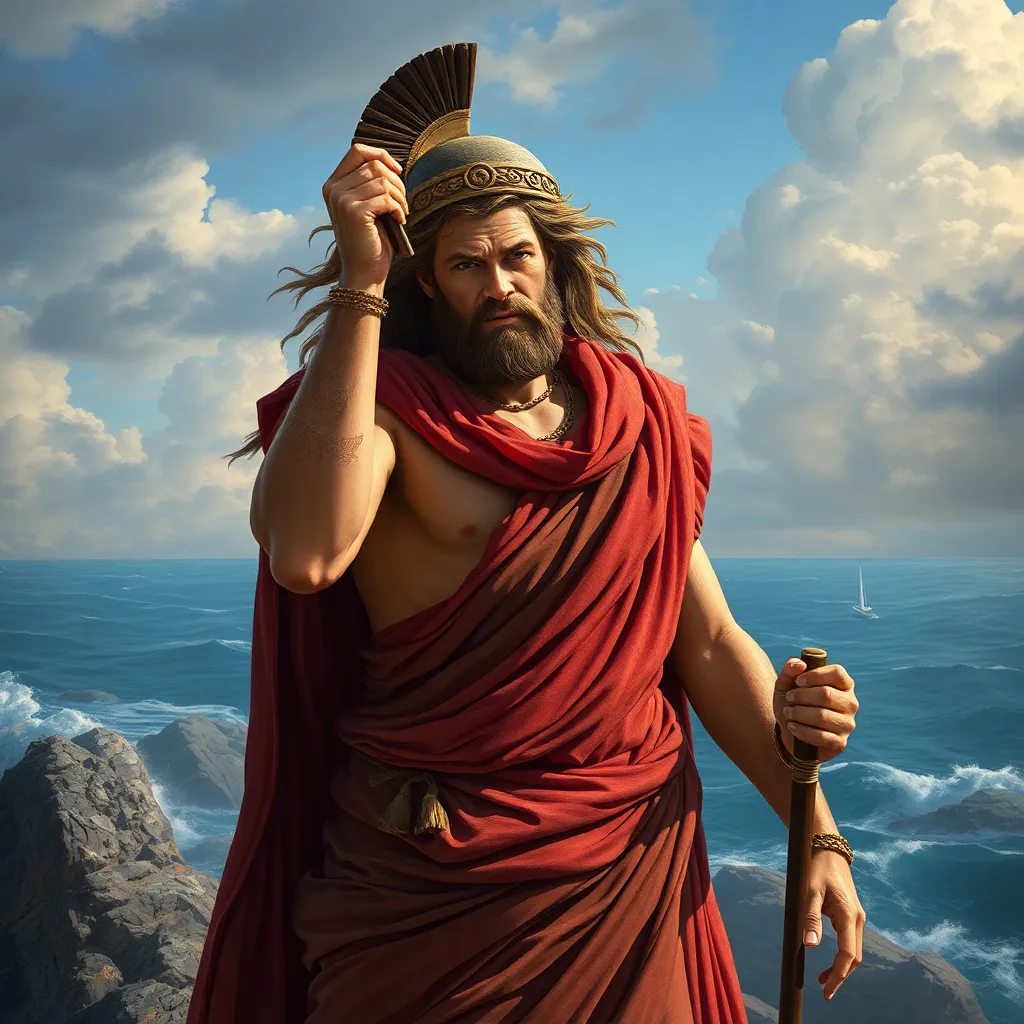The Role of Telemachus: Coming of Age in The Odyssey
I. Introduction
“The Odyssey,” attributed to the ancient Greek poet Homer, is one of the most significant works in Western literature. It chronicles the epic journey of Odysseus as he attempts to return home after the Trojan War, but it also intricately weaves the coming-of-age tale of his son, Telemachus.
Telemachus, often overshadowed by his father’s legendary status, emerges as a central character whose development is crucial to the narrative. His journey from a passive boy to a confident young man encapsulates the theme of coming of age, reflecting the struggles and triumphs associated with maturity in a turbulent world.
This article will explore Telemachus’s evolution throughout “The Odyssey,” illustrating how his experiences shape his identity and embody the timeless theme of growth and self-discovery.
II. Telemachus’s Initial State: The Boy in the Shadow of His Father
In the absence of Odysseus, Telemachus finds himself in a state of confusion and insecurity. Living in Ithaca, he is constantly reminded of his father’s absence and the looming presence of the suitors who threaten his family’s legacy.
- Life in Ithaca: Telemachus struggles to assert his authority in a household overrun by suitors vying for his mother Penelope’s hand in marriage.
- Impact of Absence: The lack of his father’s guidance deeply affects Telemachus’s self-esteem and sense of identity, leaving him feeling inadequate and lost.
- Role of Suitors: The suitors’ disrespect and their attempts to take control of his father’s estate further diminish Telemachus’s confidence, amplifying his struggle for respect and recognition.
III. The Call to Adventure: The Catalyst for Growth
Telemachus’s journey towards maturity is ignited by the divine intervention of Athena, the goddess of wisdom. Her guidance serves as a catalyst for his transformation.
- Athena’s Influence: Athena encourages Telemachus to seek out news of his father, instilling in him a sense of purpose and direction.
- Journey to Pylos and Sparta: Telemachus embarks on a significant journey to seek wisdom from Nestor and Menelaus, marking his first steps towards independence.
- Steps Toward Leadership: This journey symbolizes his initial attempts to break free from the constraints of his childhood and embrace the responsibilities of adulthood.
IV. Encounters with Wisdom: Mentorship and Learning
During his travels, Telemachus encounters key figures who impart invaluable lessons and perspectives on heroism and leadership.
- Insights from Nestor: Nestor, the wise king of Pylos, shares stories of the past and the qualities that define a true hero, enhancing Telemachus’s understanding of his father’s legacy.
- Learning from Menelaus: Menelaus, the king of Sparta, further reinforces the values of courage and loyalty, providing Telemachus with a model for his own behavior.
- Importance of Mentorship: These encounters highlight the critical role of mentorship in shaping Telemachus’s character and guiding him on his path to maturity.
V. Confrontation with Adversity: Trials and Challenges
Upon returning to Ithaca, Telemachus faces significant challenges that test his newfound courage and resolve.
- Challenges in Ithaca: Telemachus is confronted with the reality of the suitors’ presence and the chaos they bring to his household.
- Confrontation with the Suitors: His boldness in confronting the suitors marks a pivotal moment in his development, as he asserts his authority and demands respect.
- Development of Courage: Through these trials, Telemachus cultivates a sense of courage and assertiveness, which are essential traits for his transformation into a man.
VI. The Role of Family and Legacy
Family ties play a significant role in Telemachus’s journey, particularly his relationship with his mother, Penelope, and the legacy of his father.
- Relationship with Penelope: Telemachus’s interactions with his mother reveal the emotional weight of his father’s absence and the expectations placed upon him.
- Significance of Familial Ties: His bond with Penelope strengthens his resolve to protect his family’s legacy and reclaim his father’s throne.
- Bridge Between Legacies: Telemachus embodies the connection between Odysseus’s heroic legacy and his own emerging identity, navigating the expectations of both.
VII. The Transformation: From Boy to Man
Telemachus’s journey culminates in a profound transformation, marking his evolution from a boy into a capable young man.
- Key Moments of Growth: Significant events, such as his defiance against the suitors and his reunification with Odysseus, signify his maturation.
- Shift in Attitude: By the end of the epic, Telemachus demonstrates a newfound confidence and assertiveness that contrasts sharply with his earlier hesitance.
- Comparison of Character: At the beginning of the story, he is a passive boy; by the end, he emerges as a decisive young leader, ready to reclaim his place in the world.
VIII. Conclusion
Telemachus’s journey in “The Odyssey” serves as a powerful narrative of coming of age. His evolution from a boy overshadowed by his father’s legacy to a confident young man capable of taking charge of his destiny is both poignant and inspiring.
The broader implications of Telemachus’s character reflect the universal themes of growth, responsibility, and self-discovery that resonate across cultures and generations. Ultimately, Telemachus’s story underscores the significance of personal growth and the rites of passage that define the transition from youth to adulthood.




